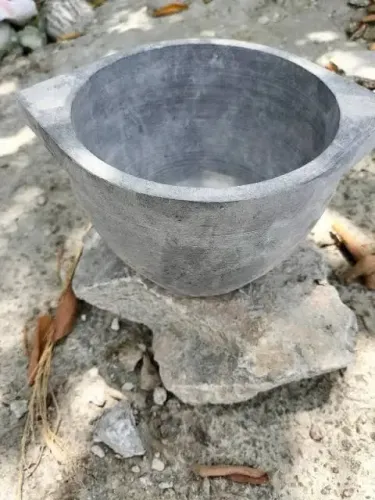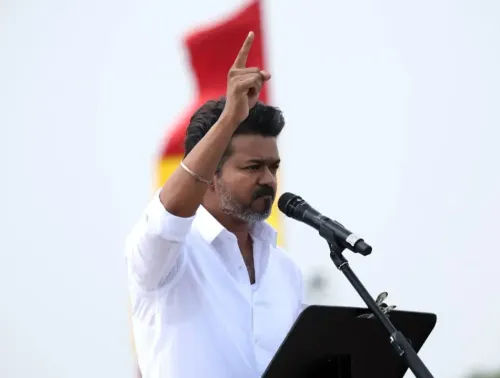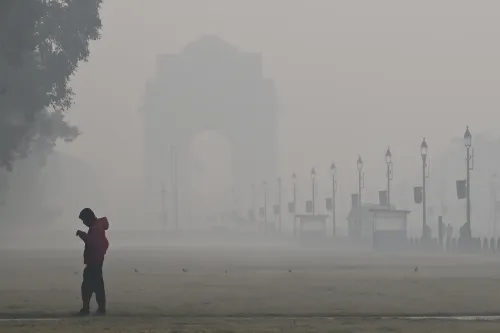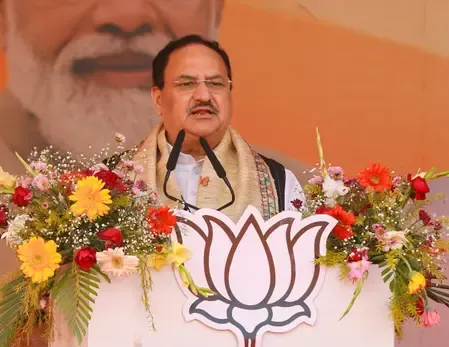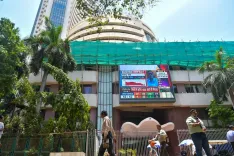Are Terror Attacks Pakistan's Well-Planned War Strategy, As PM Modi Claims?
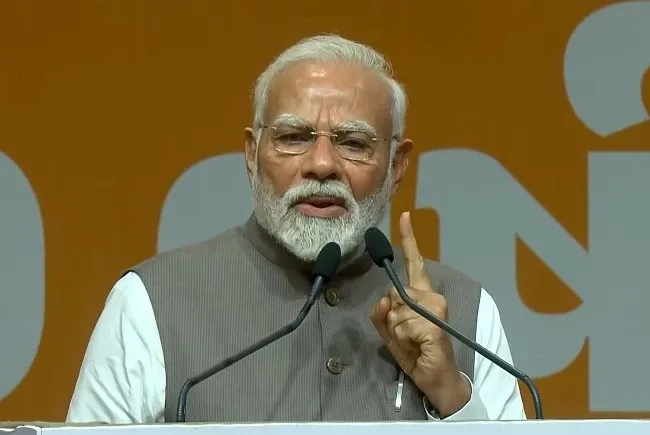
Synopsis
Key Takeaways
- Recent terror attacks are part of Pakistan's orchestrated strategy.
- Historical context is crucial in understanding current conflicts.
- India's military response has been decisive in past conflicts.
- Peaceful coexistence remains India's core principle.
- The Indus Water Treaty reflects past compromises.
Gandhinagar, May 27 (NationPress) Prime Minister Narendra Modi stated on Tuesday that the recent acts of terrorism on Indian territory should now be viewed not merely as a proxy war but as an integral part of Pakistan's state-sponsored, calculated war strategy. He referenced the state funerals and military honors given to certain terrorists recognized by the United States, highlighting this as clear evidence of Pakistan's direct involvement.
During a large public event at the Mahatma Mandir in Gandhinagar, where he unveiled development initiatives worth Rs 5,536 crore to commemorate 20 years of Gujarat's Urban Growth Story, PM Modi reflected on the painful memories of partition.
"In 1947, when Maa Bharati was split, the chains should have been broken, yet the nation was divided into three parts. That very night marked the first terrorist attack in Kashmir. One segment of Maa Bharati was wrongfully taken by Pakistan under the guise of terrorism. Had the terrorists been eradicated that day... Sardar Patel had envisioned that the army should not cease until PoK is reclaimed, but his advice went unheeded," he remarked.
Commenting on decades of strife, he noted, "These terrorists, who have tasted blood, have persisted in this for the past 75 years. Pahalgam serves as a harsh example of this. We endured this for 75 years. In every conflict with Pakistan, our armed forces delivered a strong response and triumphed. Pakistan recognized it could not succeed in a conventional war and thus initiated a proxy war."
He emphasized the ongoing trend of cross-border terrorism, stating, "Trained terrorists were dispatched to India to assault innocent, unarmed citizens—whether on pilgrimages, aboard buses, in hotels, or at tourist sites. Whenever terrorists seized an opportunity, they struck. And we continued to endure this. Should we keep tolerating this? Should we not retaliate against bullets with bombs? Should we not eradicate terrorism from its very roots?"
The Prime Minister reaffirmed India's commitment to peace, stating, "Our nation has always advanced with the spirit of Vasudhaiva Kutumbakam. We have embraced this principle for centuries, regarding the entire globe as our family. We desire peace for our neighbors as well. Live and let live; this has been our guiding principle for millennia. However, when provoked repeatedly, one must remember that this is also a land of heroes."
PM Modi asserted that the events following Operation Sindoor had completely changed the narrative.
"Until now, we referred to it as a proxy war, but after witnessing events post-May 6, we can no longer afford to make that error. The identification and destruction of nine terrorist hideouts in just 22 minutes delivered a decisive message," he added.
Taking a pointed jab at the Opposition, he remarked, "This time, everything was conducted in front of the cameras so that no one back home could demand proof. The other side is now providing the proof."
He further stated, "This is no longer simply a proxy war. The terrorists eliminated after May 6 were given state funerals in Pakistan, their coffins draped in the national flag and honored with military salutes. This unequivocally indicates that these terrorist activities were not merely covert operations—they were part of a state-sponsored, systematic war strategy. You are already engaged in a war, and you will receive an appropriate response."
The Prime Minister criticized Pakistan for spilling rivers of blood while India concentrated on development. "We were focused on progress, dedicated to the welfare of all. Yet, in return, rivers of blood were shed," he stated.
Referring to the Indus Water Treaty of 1960, PM Modi pointed out how India's interests were compromised in the past.
"I want to enlighten the younger generation about how this nation was brought to its knees. A detailed examination of the Indus Waters Treaty will shock you. It was established that the dams on the rivers of Jammu and Kashmir would not be maintained. De-silting was forbidden. The bottom gates, designed for sediment clearance, were to remain closed," he explained.
"For sixty years, those gates were never opened. Reservoirs that were supposed to be filled to 100% capacity are now at just 2 to 3%. Don't my fellow citizens deserve their water? Shouldn't they receive their rightful share? We haven't taken drastic measures—we've simply placed the treaty on hold, causing nervousness on the other side. We slightly opened the gates and initiated the cleaning process, leading to flooding on their side," he added.
Reiterating India's dedication to peace, the Prime Minister stated, "We do not seek conflict with anyone. We aspire to coexist peacefully. Our goal is to progress so we can contribute to the betterment of the world. And in pursuit of that, we are tirelessly working for all Indians."


